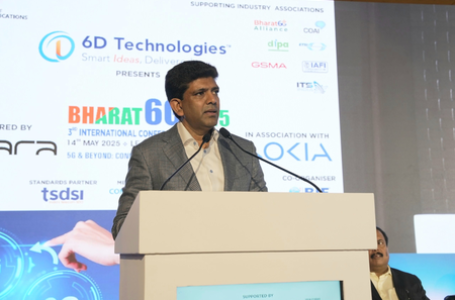A recent advertisement in the recruiting section of national newspapers caught my eye. It said the Indian Navy wished to recruit Sanitary Hygienists who were required to be only Class 6-passed. The same advertisement advised that Cooks and Stewards needed to be Class 10-passed; aspirants to be Seaman sailors needed to be at least Class 12-passed. A lay reader would probably have missed this advertisement. But for someone who has spent time in our Navy, it was indicative that while the service has progressed and vastly improved in most professional aspects, there remain distressing hold-outs from our past that resist change.
Seaman sailors necessarily need to be better educated as they man and maintain some very specialized equipment on board ships and their training is pretty technical. Cooks and Stewards require relatively less initial technical inputs, and could be slightly less educated at entry. What caught my attention however was the requirement for Sanitary Hygienists with fewer educational qualifications at entry. Sanitary Hygienist is merely an euphemism for what is known in the Navy as the Topass.
The word topass is derived from the Portuguese maritime interaction with the East since the 15th century. Originallyused to denote Luso-Indian/Asian half-breed families, the term degenerated to denote half-breed overseers of lascars (native seaman) and eventually became used to denote native seamen of the lowest ranks. Today, in the Indian Navy, it is used to designate uniformed toilet-cleaners.
Topasses (sanitary hygienists) are uniformed sailors who clean the toilets under normal peace-time conditions, and also man the ammunition-supply chain and emergency-aid stations in battle-conditions.
We, along with the Pakistani Navy, are probably the only navies in the world with this strange and demeaning category of uniformed sailor. In most other navies, every sailor cleans all compartments. There is a roster for toilets and there is never any problem with that arrangement. In our Navy, however, we have topasses for this task. A relic of our caste system, and the horrible arrangement we call “untouchability”.
In the IN, most discussion in wardrooms on “caste” and “untouchability” is subjective and largely superficial. The only occasion, during my entire naval career spanning more than four decades, during which the issue of the nastier aspects of caste actually reared its ugly head in the Navy, was in the “Topass Incident” of 1970.
The ship I was on at that time was not actually involved, but other ships berthed nearby were. I witnessed some incidents that occurred then, and therefore am aware of it. The matter was so professionally and swiftly squashed and glossed over that I am certain some of my contemporaries in the Navy may well have never heard of the incident. However, some erstwhile colleagues disagree with the reference to a mere “incident”; rather it was “mutiny,” in their view.
Here is what happened
Soon after Independence, in the ‘50s, the Indian Navy embarked on a grand and adventurous process of indigenous warship-building within the country. Quite an astounding ambition, if you consider the then state of Indian industry. Even more remarkable when one considers the state of indigenous weapon and platform production for all branches of the military. The IN displayed remarkable foresight in fostering a competitive, indigenous ship-building program in both the public and the private sectors. But we needed more platforms and the West dragged its heels while supplying our needs.
So, in the late 60’s, the Navy changed its source of ship acquisition from the UK to the USSR. Ships and submarines were procured from Russia at a fraction of the cost that Britain was willing to sell to us. In fact, we would brag, somewhat truthfully, that we were buying our ships from the USSR for bananas. For that, ships crews were deputed to train in Riga and Vladivostok and, thereafter, take possession of the new-built ships and submarines, and sail them back to India. In order to minimize expenditure in foreign exchange, only absolutely essential personnel were deputed abroad. As a result, these ships returned to India without civilian “domestic” staff: laundry-men, barbers, civilian stewards, and without uniformed “topasses”.
In these ships that were brought from Russia therefore, the ship’s company cleaned their toilets as per a roster, and there was no problem, especially since all the sailors and officers had been specially selected for these acquisitions.
On return to India, however, the ugly issue raised its head when sailors saw that the other ships in the Navy continued the iniquitous and inherently unfair earlier system and that topasses continued to clean toilets in the other ships. This caused some rumblings and disquiet. The Navy did not take cognizance of this issue quickly enough, and the matter escalated into a full-blown “morcha”. After some ugly incidents, it was controlled, and eventually hushed up. Not without repercussions that still bedevil the Navy.
There was a formal Board of Inquiry into the unrest and ugly confrontations that arose out of this “Topass Incident”, but regrettably, no lasting corrective action was taken except that surface ships procured from Russia, on arrival at home-port were now provided with some topasses each. Submarines, however, given that there is very little space on board, continue to operate with no topasses. All sailors on board our submarines take turns in cleaning all compartments including the toilet. Presumably the additional pay that submariners receive is incentive enough for them to overlook the “problem”.
This nagging issue has been kicked down the road by successive generations of naval administrations. To face the matter clearly and to ensure some smooth transition, various suggestions and administrative/legal remedies have been tabled and discussed at senior naval commander’s conferences, but the prickly issue was never dealt with finally. It is time a new generation of senior naval officers actually grasped this enduring nettle and crushed it permanently. This is one of the shameful practices within our Navy, bequeathed by pre-and post-colonial generations of senior officers to their successors. For that, all generations need to accept culpability. To rid our Navy of this “yellow stain” they must be ready to face criticism and repercussions from within the Navy and without. It is not an insurmountable problem.


















